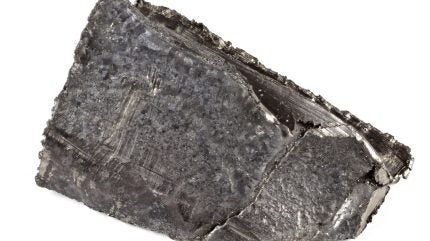
Lynas Rare Earths is set to build a new heavy rare earth (HRE) separation facility in Malaysia to meet growing demand for a dependable source of HRE oxides outside of China.
The facility will have the capacity to process up to 5,000 tonnes per annum (tpa) of HRE feedstock and will leverage Lynas’ ability to produce HRE oxides on a commercial scale.

Discover B2B Marketing That Performs
Combine business intelligence and editorial excellence to reach engaged professionals across 36 leading media platforms.
The feedstock for the new facility will be obtained from Lynas’ high-grade Mt Weld rare earths deposit and potentially from ionic clay rare earth deposits in Malaysia.
The current production at Lynas Malaysia includes light rare earth products as well as separated dysprosium and terbium oxide.
This expansion aims to increase HRE production capacity and provide customers with a wider array of HRE products essential for contemporary manufacturing.
Lynas possesses the internal expertise and facilities necessary to efficiently execute the project, with an estimated cost of approximately RM500m ($118.37m).

US Tariffs are shifting - will you react or anticipate?
Don’t let policy changes catch you off guard. Stay proactive with real-time data and expert analysis.
By GlobalDataThe project will be self-financed after a successful equity raise in September 2025.
The construction schedule is contingent upon receiving regulatory approvals and discussions are ongoing with offtake partners to secure fair pricing for the expanded HRE product range.
The phased construction of the facility will prioritise certain products, with the initial production of samarium from Mt Weld feedstock expected in April 2026.
The expansion of processing capacity will occur progressively, with the first suite of separated HREs anticipated to be ready within two years.
The initial suite will include dysprosium, gadolinium, lutetium, samarium, terbium and yttrium.
Any further investment in the flowsheet to produce more HRE products will depend on commercial agreements that validate such an investment.
In a related context, Malaysian Trade Minister Tengku Zafrul Aziz has announced that the country will maintain its ban on the export of raw rare earths to protect domestic resources, despite a critical minerals deal with the US, reported Reuters.
He said in parliament that Malaysia would not export critical minerals or rare earths to the US solely for immediate profits or strategic goals.
Malaysia reportedly has 16.1 million tonnes of rare earth deposits but lacks the necessary technology for mining and processing.





